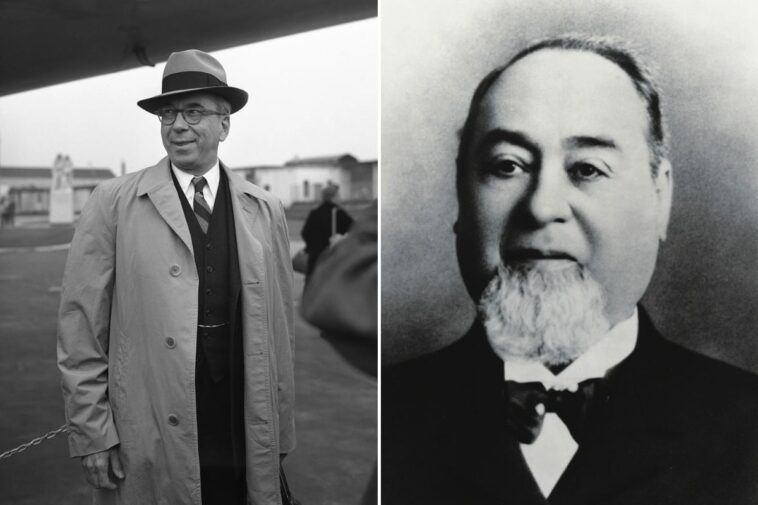TL;DR Section
- Lewis Strauss and Levi Strauss were not related.
- Lewis Strauss was influential in nuclear policy and the Atomic Energy Commission.
- Levi Strauss founded Levi Strauss & Co. and invented blue jeans.
- Both left lasting legacies in their respective fields.
Have you ever wondered if Lewis Strauss, known for his role in nuclear policy, is related to Levi Strauss, the man behind the famous blue jeans? It’s a question that can cause a bit of confusion. After all, sharing a last name might make you think they’re family.
But sometimes, things in history aren’t as straightforward as they seem. In this article, we’re going to clear up this mystery and take a closer look at the lives and legacies of these two remarkable men.
Table of Contents
Backgrounds of Lewis Strauss and Levi Strauss
Lewis Strauss: A Nuclear Policy Pioneer
Lewis Strauss was born in 1896 in Charleston, West Virginia. He wasn’t just any businessman; he played a huge role in America’s nuclear energy policy. Strauss started as an assistant to Herbert Hoover during World War I and later became a big name in investment banking.
But what really stands out is his work with the U.S. Atomic Energy Commission (AEC) in 1946. He was a key player in developing nuclear weapons and had strong views on keeping atomic secrets safe during the Cold War.
Levi Strauss: The Man Who Dressed America
On the other side, we have Levi Strauss, born in 1829 in Buttenheim, Bavaria. He was a German-Jewish immigrant who totally changed the fashion world. In 1853, he founded Levi Strauss & Co. in San Francisco.
This company was the first to make blue jeans – those cool, durable pants that everyone loves. Levi’s jeans became a huge hit, especially with miners and workers who needed tough clothes.
Exploring the Relationship
So, are Lewis and Levi Strauss related? The simple answer is no. They were two different individuals with their own unique stories. They both became successful and left big marks on American history, but they were not family.
Impact on American History
Lewis Strauss: Shaping Nuclear Policy
Lewis Strauss was more than just a businessman. As the chairman of the AEC, he had a big say in how America used nuclear energy and weapons. His decisions and ideas were super important during a time when the world was figuring out how to handle atomic power.
Levi Strauss: Revolutionizing Fashion
Levi Strauss, on the other hand, made his mark in a totally different way. His invention of blue jeans changed how people dressed. These jeans weren’t just clothes; they became a symbol of American culture and style.
Controversies and Achievements
Lewis Strauss: A Controversial Figure
Lewis Strauss had his share of controversies, especially around the downfall of physicist J. Robert Oppenheimer. He was a key figure in the debate over nuclear weapons and faced some tough times in his career.
Also see: Can You Detonate the Competition in Our Oppenheimer Movie Quiz?
Levi Strauss: More Than Just Jeans
Levi Strauss wasn’t just about making jeans. He faced business challenges and was also known for his efforts to help others. His company has continued to grow and is still a big name in the fashion industry.
People Also Ask
Were Lewis Strauss and Levi Strauss from the same family?
No, they were not related. They were two different people with different backgrounds.
What did Lewis Strauss do?
Lewis Strauss was important in the development of nuclear policy in the United States.
What is Levi Strauss famous for?
Levi Strauss founded the company that made the first blue jeans.
Conclusion
Understanding the stories of Lewis Strauss and Levi Strauss helps us appreciate their individual contributions to American history. They may share a last name, but their legacies are unique and significant in their own ways.

